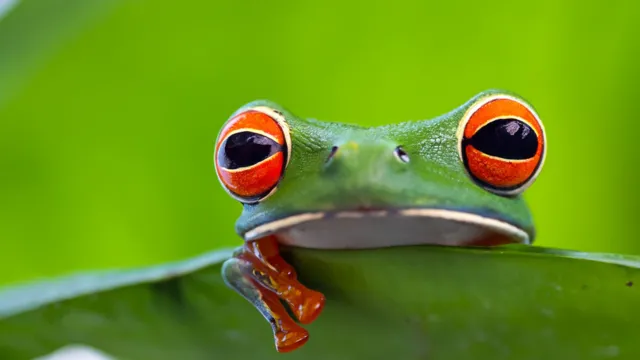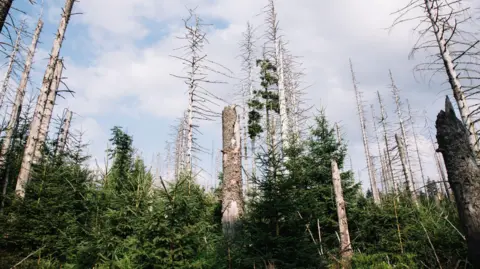Scientists say there has been an alarming lack of progress in saving nature as the UN biodiversity summit, COP 16, draws to a close.
The scale of political ambition has not risen to the challenge of reducing the destruction of nature that costs the economy billions, said one leading expert.
Representatives of 196 countries have been meeting in Cali, Colombia, to agree on how to halt nature decline by 2030.
The biodiversity summit is separate from the more well-known COP climate summit, which is set to take place in Baku later this month.
Countries were meant to come to the table with a detailed plan on how they intended to meet biodiversity targets at home, but most missed the deadline.


However, plans were agreed to raise money for conservation through making companies pay for using genetic resources from nature.
The summit comes as one million species face extinction and nature is declining at rates unprecedented in human history.
We are stuck in a “vicious cycle where economic woes reduce political focus on the environment” while the destruction of nature costs the economy billions, said Tom Oliver, professor of biodiversity at the University of Reading.


“Until we have world leaders with the wisdom and courage to put nature as a top political priority then nature-related risks will continue to escalate,” he told BBC News.
The UN biodiversity summit, COP 16, was the first chance to take stock of progress towards a landmark deal to restore nature agreed in 2022.
However, scientists lamented the pace of progress. Nathalie Seddon, professor of biodiversity at the University of Oxford, said while some meaningful progress was made, the overarching picture was “undoubtedly deeply concerning”.
“Biodiversity still takes a back seat to climate action – even though the science speaks strongly to the need for fully coordinated approaches,” she said.
What was agreed at the summit?
- An agreement was reached that companies profiting from nature’s genetic data should pay towards its protection through a global fund
- The fund, to be known as the Cali fund after the COP16 host city, will be financed with payments from companies who make use of genetic information from living things
- The role of Indigenous Peoples as vital stewards of nature was officially recognised through the setting up of a permanent body to represent their interests
The next biodiversity summit will take place in 2026, with time running out for solutions. Astrid Schomaker, executive secretary of the UN Convention on Biological Diversity, said through such gatherings governments, NGOs and scientists could share knowledge and resources.
“This collective spirit is critical as we work to develop and implement effective policies to confront the complex and interconnected crises facing our planet’s ecosystems,” she said.
Commenting on the talks, the renowned scientist, Dr Jane Goodall, said our future is “ultimately doomed” if we don’t address biodiversity loss.
She told BBC News: “We have to take action too. We can’t only blame the government and big corporations, although a huge part of the blame lies on them.”
Additional reporting by Victoria Gill.
This post was originally published on here







